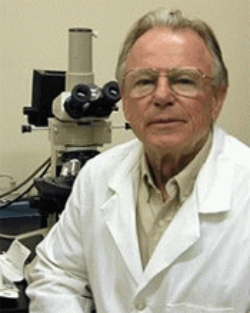Biographical Sketch:
His research interests include the hypothalamus which regulates many vital physiological functions including eating and drinking, and body composition and weight. Research in his laboratory has emphasized the relevant hypothalamic transmitters involved and their interactions with psychoactive substances such as amphetamine and caffeine which affect eating and drinking. They have also determined the neural pathways over which certain types of peripheral sensory information associated with ingestion, due to stomach distension, for example, is transmitted and eventually reduces hypothalamic neuronal sensitivity which results in the cessation of eating and drinking. Results of additional studies demonstrate that stomach distension attenuates olfactory bulb neuronal activity which is related to alterations in the perception of food associated odors. These data have the potential to provide a basis for the reduction of excessive eating and drinking which results in obesity, a major cause of a variety of diseases. In addition, they have discovered that angiotensin II (AII), which is found in high concentrations in the hippocampus, inhibits the induction of dentated granule cell long-term potentiation (LTP). The inhibitory effect is mediated by the AT, receptor. The inhibition of LTP induction by ethanol and diazepam is also mediated by the AT, receptor and might be related to the anterograde amnesic effects of these two drugs.
Topical Index:
Interview History:
Dates: Dec-07
Interviewer: P.Sanberg
Transcript:
Papers:

